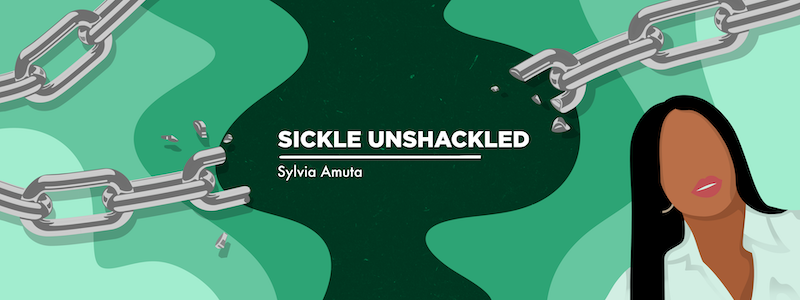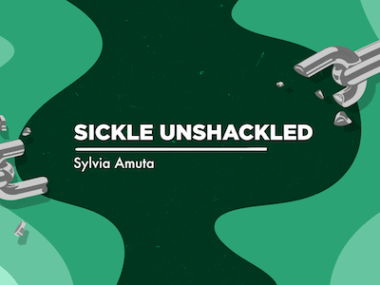Even as a doctor, I’ve learned a lot from my experience as a caregiver
In her final column, a sickle cell caregiver reflects on her journey
Written by |

When I began writing this column, I thought I knew exactly what I was stepping into. As a doctor, I’d spent years studying sickle cell disease, memorizing its complications, and prescribing treatment plans. What I didn’t know was how much more there was to learn on the other side of the stethoscope.
For the past few years, I have been caring for my cousin, who came to live with me. In that time, I’ve witnessed the quiet strength it takes to face sickle cell day after day, and I’ve felt the weight and privilege of being a caregiver. There were ups and downs, and there were lessons that no textbook ever could have taught me.
Here are just a few:
- Sickle cell is not just a diagnosis; it’s a daily negotiation. Pain crises can appear suddenly and unpredictably, often when you least expect them. Staying alert and attentive becomes second nature.
- Hydration, warmth, and rest are not clichés; they are lifelines. Making sure my cousin stayed well-hydrated, protected herself from the cold, and balanced rest with activity often made a difference in preventing or easing a crisis.
- Listen first, act second. No matter how much medical knowledge I had, it was my cousin who could tell me best what was happening in her body. Learning to trust her voice and letting her guide her care were among the most humbling and important lessons.
- Support networks matter. Sickle cell can feel isolating for patients and caregivers. Organizations, advocacy groups, and community circles became more than just resources; they became lifelines. They reminded us that we were not alone, that help and understanding exist beyond the walls of our home.
To fellow caregivers: Take care of yourself, too. It’s easy to forget your own health when you’re focused on someone else’s, but burnout is real, and you cannot pour from an empty cup. Caregiver burnout is a well‑documented phenomenon that can manifest as chronic fatigue, irritability, sleep problems, feelings of guilt, or even depression.
Self‑care doesn’t mean stepping away from your responsibilities; it means making sure you have the strength to carry them out. Sometimes it’s as simple as keeping up with your own medical checkups, carving out 30 minutes for a walk, or letting a trusted friend or family member step in so you can rest.
To those living with sickle cell disease: Your resilience continues to teach me what true courage looks like. I step away from this column with deep respect and admiration for you.
This is my final piece here, but not a final goodbye. I leave grateful for the journey, for the lessons learned, and for the chance to share this space with all of you. May the knowledge we’ve exchanged continue to strengthen and uplift others walking the same path.
Note: Sickle Cell Disease News is strictly a news and information website about the disease. It does not provide medical advice, diagnosis, or treatment. This content is not intended to be a substitute for professional medical advice, diagnosis, or treatment. Always seek the advice of your physician or other qualified health provider with any questions you may have regarding a medical condition. Never disregard professional medical advice or delay in seeking it because of something you have read on this website. The opinions expressed in this column are not those of Sickle Cell Disease News or its parent company, Bionews, and are intended to spark discussion about issues pertaining to sickle cell disease.






Leave a comment
Fill in the required fields to post. Your email address will not be published.